Primates are our closest living relatives, and yet for those born into Australia’s animal research industry it is their ‘uniquely human’ qualities that are ultimately costing them their freedom — and their lives …
This image contains content which some may find confronting
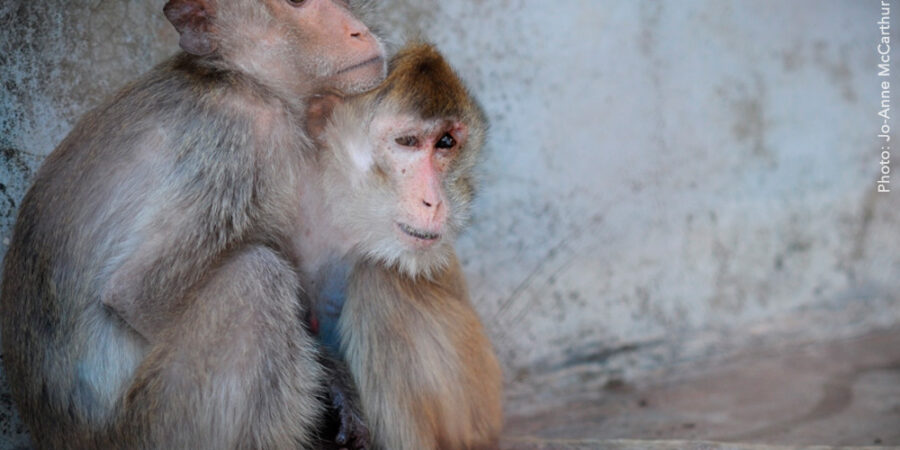
1. It’s cruel
Non-human primates are self-aware, like us. And, just like us, they have an enormous capacity to suffer both physically, and psychologically. When used in research, these incredible animals may be denied any semblance of a ‘normal’ life — they will be shipped from Australian breeding facilities or imported from breeding farms in Asia, like the one pictured above. They will be treated not as individuals, but as ‘experimental models’ — and may be the test subjects of many different experiments before they are ultimately killed.
These sensitive animals can be subjected to any number of distressing procedures during their lives — including the separation of mothers from their babies, invasive surgeries, being tied to restraint devices for hours on end, and being denied food and water. Their ‘reward’, is to ultimately be killed when the experiments are over.
This image contains content which some may find confronting
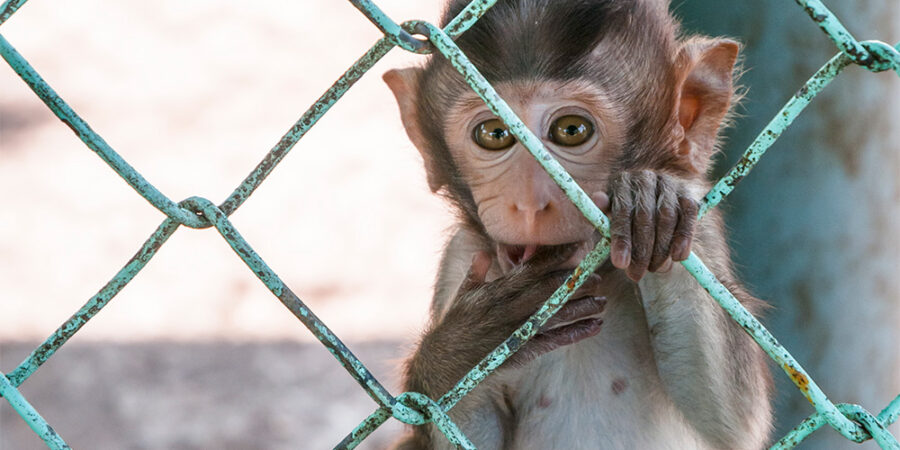
2. It’s happening
Right now, right here — in our own backyard. Researchers are still killing primates — like baboons, macaques and marmosets. These highly intelligent and socially complex animals continue to be subjected to very invasive experiments — their suffering hidden from public scrutiny by a veil of secrecy.
This image contains content which some may find confronting
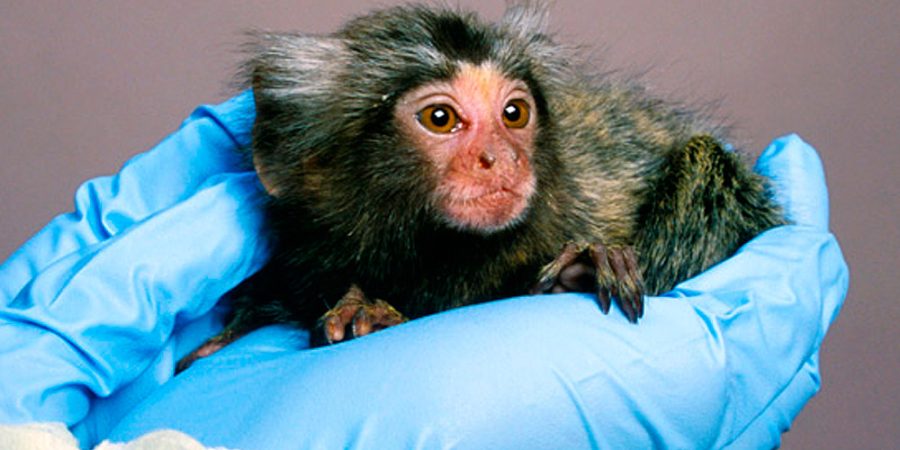
3. It’s not about saving lives
The public perception that animal-based research is always conducted as a ‘last resort’ to save human lives is false. While researchers are required to pass an ‘ethics test’ by proving that any potential benefits to humans outweigh the impact on the animals involved — many invasive and ultimately lethal experiments continue to be carried out on primates, despite not directly benefiting human health and development.
This image contains content which some may find confronting
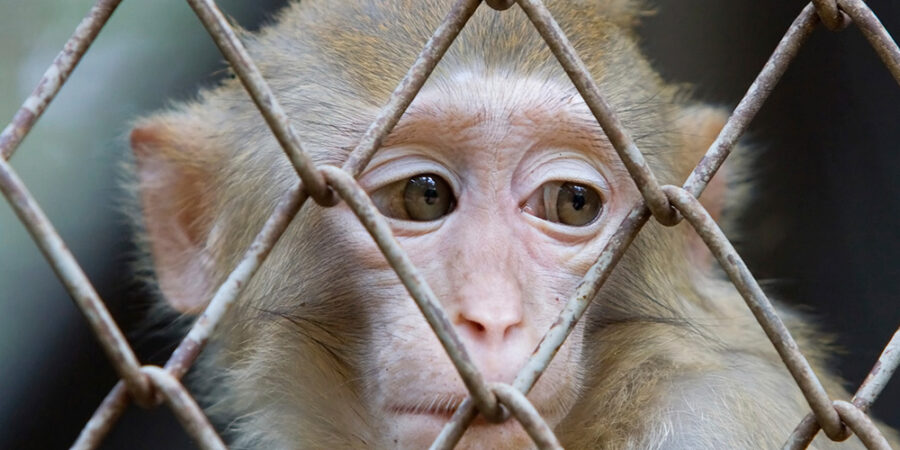
4. You’re paying for it
Animal research is a multi-billion dollar industry, encompassing the pharmaceutical and chemical industries, and university and government bodies. Primates destined for experimental use are born into government-funded breeding facilities, and transported to researchers whose studies are funded by government grants and/or public donations.
If you want to be confident that your donations are not supporting animal experiments, check out the Humane Charities List for a guide to health-related charities that do not fund or engage in animal research.
This image contains content which some may find confronting
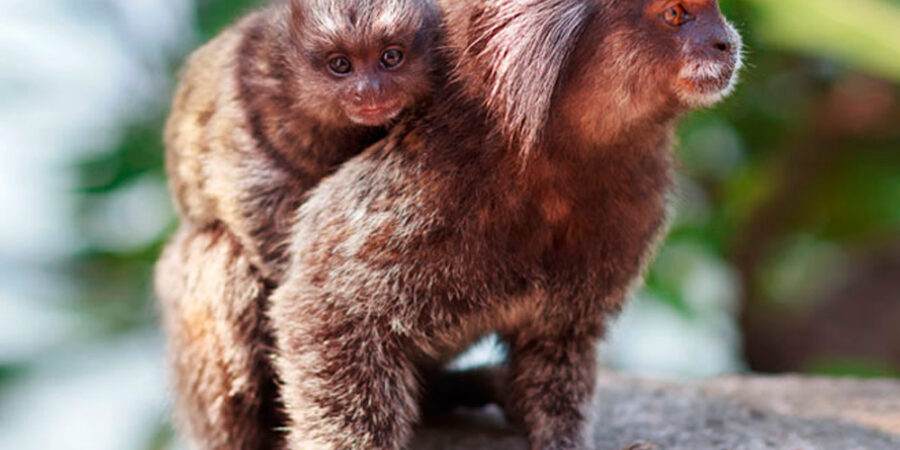
5. It’s bad science
Experimentation on animals has consistently been found to be poorly predictive of similar tests and treatments in humans. Despite being our closest living relatives, primates have significant genetic differences that can make applying the results of their tests to human patients ineffective at best — and lethal at worst.
This image contains content which some may find confronting
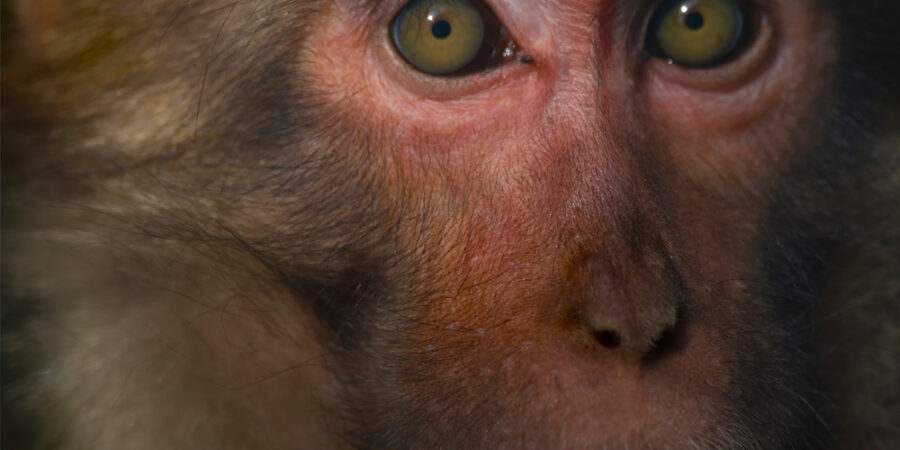
6. There’s no ‘retirement’ for ex-laboratory primates
While the National Health and Medical Research Council’s policy requires the long-term welfare of non-human primates to be taken into account — there are currently no retirement facilities in Australia for primates after their use in research. Non-human primates that are born into breeding facilities in Australia will ultimately die in a laboratory.
This image contains content which some may find confronting
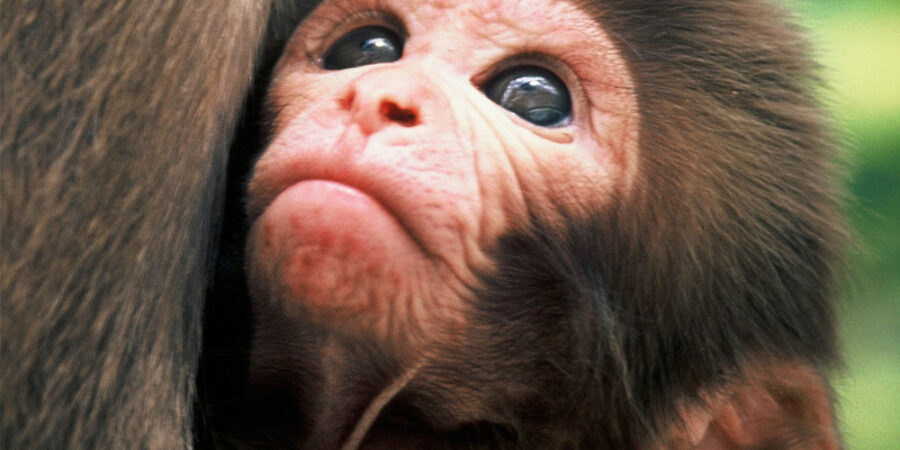
7. There is a better way
Testing on animals is not only unethical — it’s unnecessary. We live in a truly remarkable age — where 3D printers can provide mobility to people (and animals!) who have lost their limbs, and research groups are well on their way to being able to custom-make body parts and organs in labs.
The future of compassionate — and reliable — science is in adopting the development and use of animal-free research methods, as is already happening internationally. And with so many humane alternatives being developed, it is clearer than ever before that animal experimentation belongs in the past.
Support scientific progress — not outdated animal cruelty
If you’re for science, and for animals, take action to help non-human primates today:
- Support Humane Research Australia’s work to Ban Primate Experiments — head to their website for more information on how to help free animals from cruel and unnecessary tests.
- Help spare wild and endangered monkeys in Indonesia from being captured and sent around the world for cruel experiments.
- Pledge to opt for cruelty-free cosmetics and household products.
Many thanks to Humane Research Australia for sharing their research and information, and for their tireless work to end animal experimentation.





